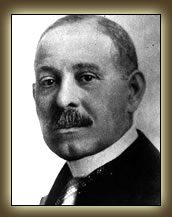|
Getting your Trinity Audio player ready...
|
Dr. Daniel Hale Williams stands as a towering figure in American medical history, breaking racial barriers and revolutionizing cardiac surgery in the late 19th century. Born on January 18, 1856, in Hollidaysburg, Pennsylvania, Williams would go on to become one of the most influential African American physicians of his time.
Early Life and Education
Growing up in a family of nine children, Williams faced adversity early when his father passed away from tuberculosis. By age 20, he had found his calling in medicine, apprenticing under a former surgeon general in Wisconsin. His determination led him to earn his medical degree from Chicago Medical College (now Northwestern University) in 1883.
Breaking Barriers in Healthcare
In an era of deep-seated racism and discrimination, Dr. Williams believed in providing quality healthcare to all, regardless of race. This conviction led him to establish Provident Hospital in Chicago in 1891, the first Black-owned and interracially staffed hospital in America. This groundbreaking institution not only served patients of all races but also provided crucial training opportunities for Black medical professionals.

Pioneering Heart Surgery
Dr. Williams’ most celebrated achievement came on July 10, 1893, when he performed one of the world’s first successful open-heart surgeries. Operating on James Cornish, a man with a severe stab wound to his chest, Williams successfully repaired the pericardium (the sac surrounding the heart) without the benefits of modern surgical procedures, blood transfusions, or antibiotics13.
This landmark operation, performed at Provident Hospital, showcased Williams’ exceptional skill and daring. Cornish not only survived the procedure but lived for another 20 years, cementing Williams’ place in medical history.
Advancing Medical Practices
Dr. Williams’ contributions extended far beyond his famous heart surgery:
- He introduced sterilization procedures and aseptic techniques in his practice, significantly reducing infection rates5.
- At Freedmen’s Hospital in Washington, D.C., he implemented modern hospital practices, including pathology and bacteriology labs10.
- He started one of the first ambulance services in Chicago8.
- Williams established training programs for Black nurses and physicians, expanding opportunities in the medical field8.
Legacy and Recognition
Dr. Williams’ impact on medicine and racial equality in healthcare cannot be overstated. In 1913, he became the first African American inducted into the American College of Surgeons, a testament to his skill and influence9.
Today, his legacy lives on through institutions like the Daniel Hale Williams Medical Reading Club in Washington, D.C., and in the countless Black medical professionals who have followed in his footsteps.
Williams’ Significant Contributions to Medicine
Dr. Daniel Hale Williams made several significant contributions to medicine, though he is not known for specific medical inventions. His major medical achievements include:
- Performing one of the first successful open-heart surgeries on July 10, 1893. Williams repaired a tear in the pericardium (the sac surrounding the heart) of a stabbing victim, James Cornish, who survived the procedure and lived for another 20 years13.
- Establishing sterilization procedures and aseptic techniques in his medical practice, which significantly reduced infection rates2.
- Founding Provident Hospital in Chicago in 1891, the first Black-owned and interracially staffed hospital in America. This institution provided crucial training opportunities for Black medical professionals12.
- Implementing modern hospital practices at Freedmen’s Hospital in Washington, D.C., including the introduction of pathology and bacteriology labs2.
- Starting one of the first ambulance services in Chicago2.
While not inventions in the traditional sense, these achievements revolutionized medical practices and advanced the field of cardiac surgery during a time when operating on the heart was considered extremely dangerous3
Conclusion
Dr. Daniel Hale Williams’ life and career exemplify the power of determination, skill, and compassion in overcoming societal barriers. His groundbreaking achievements in cardiac surgery and his tireless efforts to provide quality healthcare and medical education to all races continue to inspire medical professionals today. As we celebrate Black History Month, we honor Dr. Williams’ extraordinary contributions to medicine and his enduring impact on healthcare equality in America.


